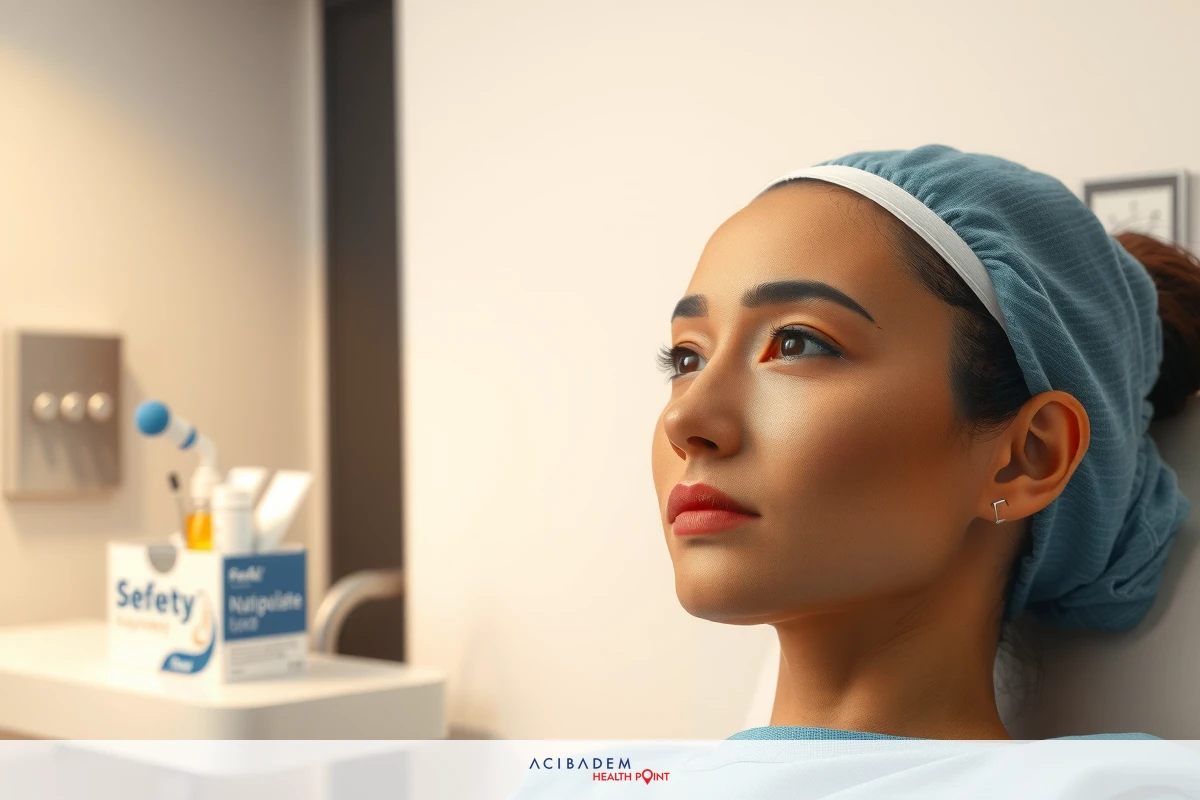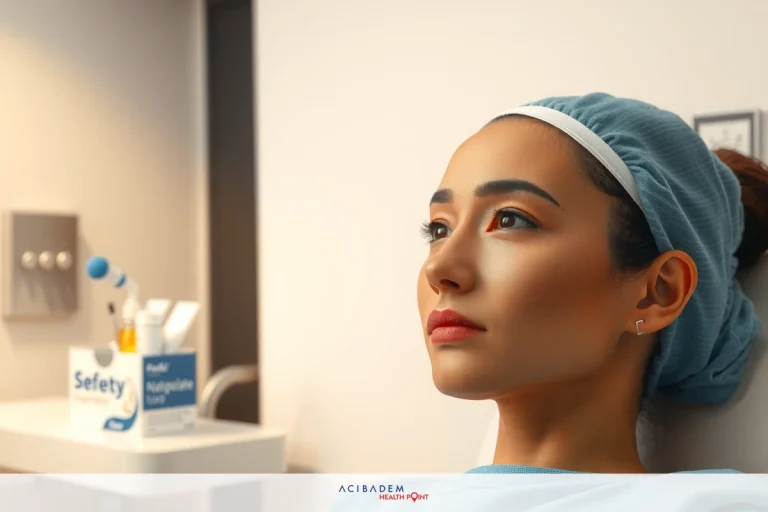How Long After Rhinoplasty Can I Blow My Nose
How Long After Rhinoplasty Can I Blow My Nose Rhinoplasty, or nose reshaping surgery, requires a period of recovery during which patients must adhere to certain guidelines to ensure optimal healing. One common question that arises is when it’s safe to start blowing your nose again. This might seem like a minor concern, but it’s vital to healing and comfort during the post-operative period.
This article offers practical advice on post-operative care after rhinoplasty, focusing on the crucial aspect of nasal hygiene. It also provides useful tips for blowing your nose safely and effectively after surgery, helping you navigate your recovery with assurance. Your ability to maintain these practices can play a pivotal role in achieving the desired surgical outcomes and returning to normal daily activities as swiftly as possible.
Post-Operative Care
The recovery period following rhinoplasty is a crucial phase that can significantly influence the outcome of your surgery. It’s important to follow your surgeon’s instructions diligently. In the early stages of rhinoplasty recovery, it’s normal to experience swelling and discomfort. Your nose will be packed with gauze to control bleeding and support the new shape. The packing is typically removed after a few days.
In the initial weeks of post-operative care, you should avoid strenuous activities, such as heavy lifting or high-intensity workouts, which could increase blood pressure in your nose and potentially lead to complications. Moreover, it’s beneficial to keep your head elevated even when sleeping to reduce swelling. You should also wear clothes that fasten in the front rather than pull over the head to avoid disturbing the surgical site.
During this healing process, one critical aspect is not blowing your nose. Blowing your nose after surgery might seem instinctive, especially if you feel congested, but doing so can disrupt the healing tissues and cause complications. If you need to sneeze, try to do so with your mouth open to minimize pressure on your nose. Your surgeon will advise you when it’s safe to start blowing your nose again, usually around three weeks post-surgery but this can vary depending on individual healing rates.
Nasal hygiene plays an integral role in post-operative care after rhinoplasty. Cleaning your nasal passages gently with a saline solution can help keep them moist and clean without causing harm. However, remember not to blow your nose even after rinsing. By following these guidelines and being patient with your recovery process, you can protect your surgical results and make your journey towards a new look easier and more comfortable.
Nasal Hygiene
Maintaining good nasal hygiene after rhinoplasty surgery is crucial for the healing process and your overall comfort. It can help reduce the risk of infection, promote healing, and relieve feelings of congestion or dryness that are common post-surgery. However, it’s essential to remember that the nose will be more sensitive during this period, so care should be taken not to cause irritation or damage.
Here are some best practices for maintaining proper nasal hygiene following rhinoplasty surgery:
- Use a Saline Rinse: Rinsing your nasal passages with a saline solution can help keep them clean and moist. This can be done several times a day, especially if you feel dryness or crusting.
- Gentle Cleaning: If your surgeon gives you the go-ahead, you can gently clean around the nostrils with a cotton swab dipped in warm water or saline solution.
- Avoid Nose Blowing: As mentioned earlier, blowing your nose after surgery can disrupt the healing tissues and cause complications. Until advised otherwise by your surgeon, avoid blowing your nose.
- Stay Hydrated: Drinking plenty of fluids helps to thin mucus in the nasal passages, reducing feelings of

A young woman in a medical professional outfit, wearing blue scrubs and a surgical mask, is looking down with a concerned expression. She has dark hair tied back. The setting appears to be an examination or treatment room within a medical facility. There’s a clinical and serious atmosphere. congestion.
- Humidifier Use: Using a humidifier at night can help keep your nasal passages moist, especially in dry environments.
Remember that your surgeon knows your situation best, so always follow their specific instructions regarding post-operative care and nasal hygiene.
Tips for Blowing Your Nose Safely
When you’ve undergone rhinoplasty surgery, knowing when and how to blow your nose safely is crucial. While it might seem like a simple activity, blowing your nose too soon after surgery can disrupt the healing process and even lead to complications. Your surgeon will typically advise you to avoid blowing your nose for at least three weeks post-surgery, but this timeline may vary based on individual healing rates.
Once you have the green light from your doctor, there are certain precautions you should take when blowing your nose. First and foremost, be gentle. Forceful or vigorous nose blowing could cause harm to the sensitive surgical site. Instead, try to blow softly, one nostril at a time. This can help clear the nasal passages without exerting too much pressure. It’s also advisable to use a soft tissue or handkerchief to avoid irritating the skin around your nose.
In addition to these tips, maintaining good nasal hygiene can also aid in safe nose blowing. Keeping the nasal passages clean with a saline rinse can help reduce congestion and make it easier to blow your nose gently. Also, staying hydrated can help thin the mucus in your nasal passages, making it easier to expel without forceful blowing. Remember that while these tips can be helpful, it’s essential always to follow the specific instructions given by your surgeon for your post-operative care and recovery. With patience and proper care, you’ll be able to resume normal activities, like blowing your nose, without risking your surgical results.
Frequently Asked Questions
When is it safe to start blowing my nose after rhinoplasty surgery?
It is generally safe to start blowing your nose around three weeks post-surgery. However, it's essential to follow your surgeon's specific instructions as individual healing rates may vary.
Can I use nasal sprays or decongestants after rhinoplasty?
It is advisable to avoid using nasal sprays or decongestants without consulting your surgeon first. Certain ingredients in these products can have adverse effects on the healing process.
How can I alleviate nasal congestion during the recovery period?
To alleviate nasal congestion, you can try using saline nasal rinses or inhaling steam from a warm shower. Staying hydrated and avoiding dry environments can also help reduce congestion.
Is there anything I should avoid when cleaning my nose after surgery?
Yes, it is important to avoid inserting any objects into your nostrils, such as cotton swabs or tissue, as this can cause damage and delay the healing process. Stick to gentle cleaning around the nostrils with a cotton swab dipped in warm water or saline solution if advised by your surgeon.
What should I do if I accidentally sneeze after rhinoplasty surgery?
If you need to sneeze, try to do so with your mouth open to minimize pressure on your nose. If you feel a sneeze coming on and are concerned about its impact on the surgical site, you can support your nose gently with a clean tissue or handkerchief. However, if you accidentally sneeze without taking these precautions, don't worry too much – just inform your surgeon during your follow-up appointments.











